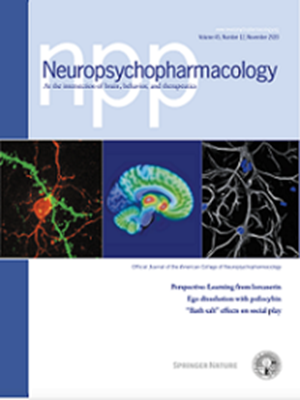Phytocannabinoids restore seizure-induced alterations in emotional behaviour in male rats
IF 6.6
1区 医学
Q1 NEUROSCIENCES
引用次数: 0
Abstract
Epilepsy often presents with severe emotional comorbidities including anxiety and abnormal fear responses which impose a significant burden on, and reduce, quality of life in people living with the disease. Our lab has recently shown that kindled seizures lead to changes in emotional processing resulting from the downregulation of anandamide signalling within the amygdala. Phytocannabinoids derived from the Cannabis sativa plant have attracted a lot of interest as a new class of drugs with potential anticonvulsant effects. Among the wide number of compounds occurring in Cannabis sativa, Δ9- tetrahydrocannabinol (THC), the one responsible for its main psychoactive effects, and the nonpsychoactive cannabidiol (CBD) have been extensively examined under pre-clinical and clinical contexts to control seizures, however, neither have been assessed in the context of the management of emotional comorbidities associated with seizure activity. We used two behavioural procedures to assess anxiety- and fear-like responding in adult male Long-Evans rats: elevated plus maze and auditory fear conditioning. In agreement with previous reports, we found seizure-induced increases in anxiety- and fear-like responding. These effects were reversed by either CBD (vaporized) or THC (oral). We also found that antagonism of serotonin 1 A receptors prior to CBD exposure prevented its protective effects. Phytocannabinoids offer a novel and reliable opportunity to treat seizure induced comorbid emotional alterations.

植物大麻素可恢复雄性大鼠因癫痫引起的情绪行为改变。
癫痫通常伴有严重的情绪并发症,包括焦虑和异常恐惧反应,这给患者带来了沉重的负担,并降低了他们的生活质量。我们实验室最近的研究表明,点燃的癫痫发作会导致杏仁核内的anandamide信号下调,从而导致情绪处理发生变化。从大麻植物中提取的植物大麻素作为一类具有潜在抗惊厥作用的新型药物,引起了人们的广泛兴趣。在大麻中出现的大量化合物中,Δ9-四氢大麻酚(THC)是其主要的精神活性成分,而非精神活性的大麻二酚(CBD)则已在临床前和临床环境下被广泛用于控制癫痫发作,然而,这两种物质都没有在控制与癫痫发作活动相关的情感并发症方面进行过评估。我们使用了两种行为程序来评估成年雄性长耳大鼠的焦虑和恐惧反应:高架加迷宫和听觉恐惧条件反射。与之前的报告一致,我们发现癫痫发作会诱发焦虑和恐惧反应的增加。CBD(汽化)或 THC(口服)可逆转这些效应。我们还发现,在接触 CBD 之前拮抗血清素 1 A 受体可阻止其保护作用。植物大麻素为治疗癫痫发作引起的合并情绪改变提供了一个新颖而可靠的机会。
本文章由计算机程序翻译,如有差异,请以英文原文为准。
求助全文
约1分钟内获得全文
求助全文
来源期刊

Neuropsychopharmacology
医学-精神病学
CiteScore
15.00
自引率
2.60%
发文量
240
审稿时长
2 months
期刊介绍:
Neuropsychopharmacology is a reputable international scientific journal that serves as the official publication of the American College of Neuropsychopharmacology (ACNP). The journal's primary focus is on research that enhances our knowledge of the brain and behavior, with a particular emphasis on the molecular, cellular, physiological, and psychological aspects of substances that affect the central nervous system (CNS). It also aims to identify new molecular targets for the development of future drugs.
The journal prioritizes original research reports, but it also welcomes mini-reviews and perspectives, which are often solicited by the editorial office. These types of articles provide valuable insights and syntheses of current research trends and future directions in the field of neuroscience and pharmacology.
 求助内容:
求助内容: 应助结果提醒方式:
应助结果提醒方式:


